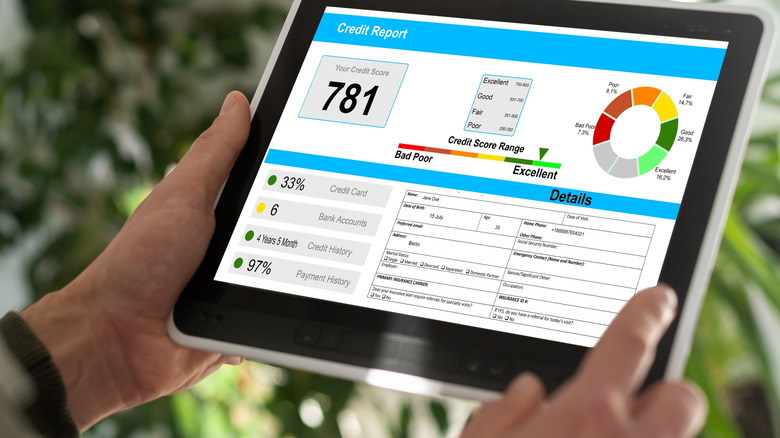When Your Credit Score Reaches This Number, You Can Qualify For A Jumbo Refinance Loan
As home values continue to climb, many Americans need to take out larger mortgages to keep up. This has made jumbo loans — which let homeowners borrow higher amounts than they could with conforming loans –- more common than ever. The increase in jumbo loans has also translated into greater demand to refinance those loans, a trend which is likely to continue if mortgage rate predictions are correct and rates continue to fall, even modestly. In that case, homeowners who purchased expensive properties over the last few years could stand to save significantly by refinancing. But qualifying for a jumbo refinancing loan versus a conforming loan isn't as simple as checking a different box on an application. Because these loans are larger and riskier for lenders, the requirements are more stringent. In most cases, you'll need a score of at least 700 to qualify.
Lenders use credit scores to help determine how risky you are as a borrower based on your credit history. For conforming loans, which must meet certain criteria from the Federal Housing Finance Agency and are typically less than $806,500 (though they can be as high as $1.2 million in some high-cost areas), a minimum score of 620 is typically required to refinance.
With jumbo loans, however, the loan amounts are higher, and lenders need more assurances that you'll be able to pay them back. As a result, in most cases, you'll need a minimum credit score of at least 700 to get the job done. The minimum score could be even higher if you're looking to refinance an investment or rental property, in which case your score will likely need to be closer to 760.
Your credit score and its relationship to jumbo loans and interest rates
If 700 seems like a high credit score, it's probably not as out of reach as you think. The average credit score in the U.S. is 715, according to FICO, though scores are highly correlated with age. While the average credit score for Gen Z is 681, the number rises steadily with each older generation, peaking at 760 for the silent generation, or the oldest Americans. If you're considering a jumbo refinance loan but aren't sure whether you'll qualify, there are various things you can do to strengthen your credit score. For instance, boosting your credit limit can affect your score, so requesting higher limits on revolving credit, such as credit cards, could help. You should also pay down account balances, dispute any inaccurate information on your credit report, and be sure to make your payments on time.
Having a higher credit score will also improve your chances of qualifying for a lower interest rate. In late 2025, the average refinance rate for a jumbo 30-year fixed-rate loan was around 6.6%, according to Bankrate. This rate was slightly higher than the average rate for conforming loans due to the higher risk to the lender. Borrowers with credit scores in the top tier — 740 to 760 — could see a few points shaved off the average interest rate. While this may not seem significant, even a slightly lower rate can yield significant cost savings over the life of the loan when loan values are around or above a million dollars.

